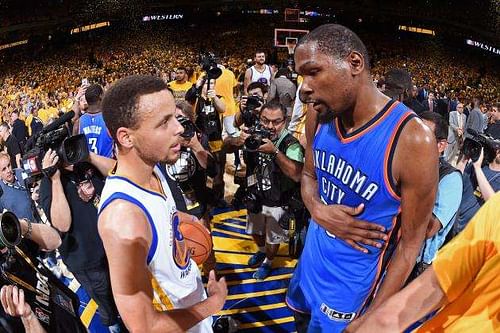
5 reasons why super teams ruin the integrity of the NBA
In the last decade, the term “super team” has come up many times as players try to win an NBA championship. Loyalty to a team has been questioned by fans and why the good teams get better and the bad teams get worse. Rarely you see a player stay with one team for the length of his career. Kobe Bryant and Dirk Nowitzki are good examples as they have remained with their respective teams for their playing careers while the owners built around them.
Recently retired Tim Duncan also played his 19-year career with the San Antonio Spurs, showing that loyalty to a team and city exists for those who want it to be. What’s even more impressive is that Tony Parker and Manu Ginobili also have remained with the Spurs for their entire careers, thus giving the Spurs three big players to go with without having to overspend or entice with other matters.
Although not on the same level as those stated above, Udonis Haslem started with the Miami Heat, after they drafted Dwyane Wade in 2003 and remained with the Heat since then. Sometimes players are unaware how much of a difference they make when they stay with a team, how younger fans look up to them as heroes, and how loyal they can be for those fans who cheer for them night in and night out.
Listed below are 5 reasons why I believe the NBA's integrity is ruined by these super teams.
1) Morally and ethically, players are taking the easy way out
When players declare their eligibility for the NBA draft, it’s supposed to be a joyous occasion where the dream of playing in the NBA is achieved after many committed hours of hard work and dedication.
Once playing, the thoughts of winning a championship come to mind. It brings the principle of working hard to accomplish your goals. By skipping that part in hopes you get on one of the super teams via trade or other methods, you morally want the easiest way of getting what the majority of others work hardest for.
If a draft pick had a lower stock and wasn’t going in the top half, for example, he would be thrilled with the idea of going to a super team with a late 1st round pick.
There are exceptions, though. One could argue that Kevin Garnett tried his best with Minnesota from 1995-2007 and then was traded to Boston where he won a championship in 2008.
Another example could be Chris Bosh. He spent 7 seasons with Toronto before moving onto Miami Heat and their super team. Is 7 or 12 years considered enough time before leaving for a super team?
